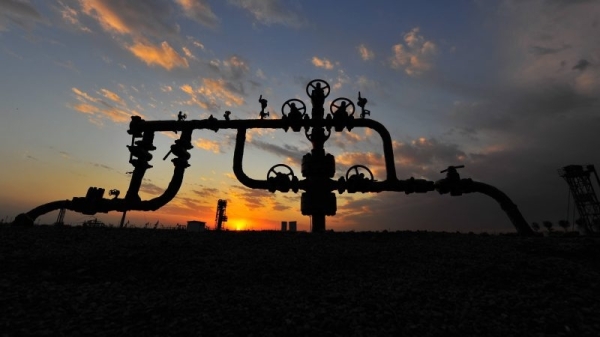EU plans to extend gas consumption reduction targets

The EU is planning to extend its gas consumption reduction measures into next winter, the bloc’s energy ministers said on Tuesday (28 February), to replenish stocks.
Confronted by soaring energy costs after Russia invaded Ukraine last year, the 27-member bloc agreed last July to reduce gas usage between August 2022 and March 2023 by 15%.
The actual reduction figures have exceeded the “voluntary” target, thanks to mild weather and high prices that forced households and businesses to limit energy usage.
According to the EU statistics agency Eurostat, gas consumption in the EU fell by 19.3% between August and January, compared to the same period between 2017 and 2022.
The member states “discussed extending a number of emergency measures to be able to quickly fill our gas stocks and cope with possible tensions,” French Energy Minister Agnès Pannier-Runacher said on Tuesday.
The EU regulation adopted last year expires at the end of March, the EU’s energy commissioner Kadri Simson said late Monday, adding that the Commission considers “continuing demand reduction a no regret option”.
“It is key to ensure our preparedness for the next winter and for reaching the 90% storage target by November 1,” she added, a permanent EU aim for every winter.

Energy battle won, but fight not over, says EU energy chief
The EU has successfully made it through the winter despite Russia’s attempts to disrupt its gas supplies, but there is still a lot of work needed to protect future energy security, said EU energy commissioner Kadri Simson on Monday (27 February).
EU member states will have to agree any new target on reduction for next winter.
Germany, the EU’s biggest economy, has called for a target higher than 15%.
German state secretary Sven Giegold said it was important “not only to prolong the current rules, (but) we have to get tougher, in order to send a signal to the market”.
Others were more reserved. Czech Industry Minister Jozef Sikela said last year’s moves were “technically not repeatable”.
“You cannot force basically the households to heat even less. You cannot force the industry to produce less,” he warned, calling for measures like more energy efficiency.
LNG imports surge
Meanwhile, European imports of liquefied natural gas soared last year as nations sought to cover for drops in Russian pipeline supplies, a report from the International Energy Agency said Tuesday.
“LNG import growth in 2022 was led by Europe with a sharp 63% increase, compensating for a significant drop in pipeline gas imports from Russia,” the IEA said in a quarterly report on the gas market.
European imports of LNG rose by 66 billion cubic metres, with the United States supplying two-thirds of that increased consumption, the report said.
For 2023, the IEA expects European gas demand to dip by 3% after having fallen by 13% in 2022. It sees further reductions in the use of gas by the power sector as renewables expand and French nuclear production increases after repair works are completed.

EU-27 approves demand gas reduction plan after power struggle with Brussels
EU energy ministers greenlit a plan on Tuesday (26 July) to reduce gas consumption and prepare for potential disruptions to Russian gas flows after a power struggle with the European Commission over who could implement mandatory targets.



